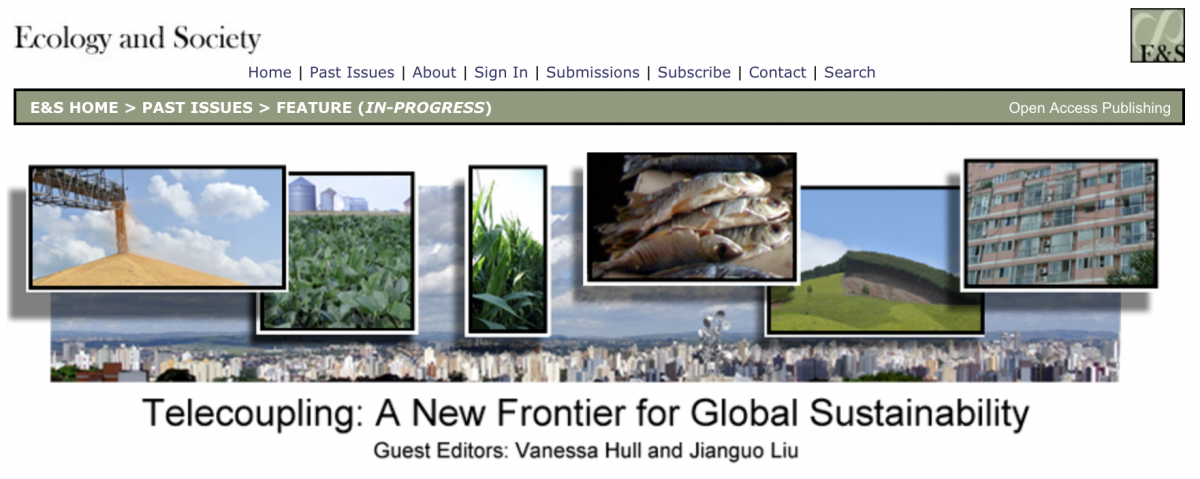Sustainable science amplifies the global of local
Add Summary

Seabird watching off the tip of South America. Trekking through banana plantations in Laos. Dairy farming in the midwestern USA. Each once-local experience is now part of a global sustainability challenge.
As local becomes global, sustainability scientists are breaking down disciplinary barriers and joining in new ways to figure out survival. In the face of threats that transcend borders -- climate change, water and energy shortages, food insecurity, pollution flows – scientists themselves are shedding conventional limitations.
In a special feature in the journal Ecology and Society, a sweeping collection of 16 articles by researchers and practitioners with expertise in diverse disciplines from countries all over the world unite in a new way of doing science.
“Telecoupling: A New Frontier for Global Sustainability” is a call for big thinking and big science. Telecoupling refers to socioeconomic and environmental interactions between distant coupled human and natural systems and has become more extensive and intensive in the globalized era.
and has become more extensive and intensive in the globalized era.
Guest editors Jianguo “Jack” Liu, Michigan State University (MSU) Rachel Carson Chair in Sustainability, and Vanessa Hull, assistant professor of wildlife ecology and conservation at University of Florida, curate what amounts to a new call for science to address the urgency of sustainability challenges.
“We can no longer afford to take isolated looks at telecoupled challenges and opportunities,” said Liu, who is director of MSU’s Center for Systems Integration and Sustainability. “This special feature provides abundant evidence that we can make big gains in understanding how interconnected the world is.”
The articles explore diverse telecouplings including trade, migration, tourism, information exchange, and transnational product certification schemes. Some telecouplings can improve social networks and foster better local-international information exchange. Others lead to instability, as when one country’s economic problems cause food prices to soar, affecting trade relationships between multiple other countries and in turn trickling down to alter far away villages and ecosystems.
Hull and Liu synthesize the articles by describing eight overarching lessons learned in their guest editorial. They note the importance of recognizing trade-offs between local and global sustainability and the need for multi-level management and governance solutions.
“Traditional approaches to both research and management alone may be unable to handle such complexity due to the tendency to focus on single places and to remain entrenched within individual disciplinary ‘silos’,” the editorial notes. “The telecoupling framework is a transdisciplinary and multi-level solution to overcome these limitations.” In 2013, Liu, Hull, and an international group of natural and social scientists published the award-winning telecoupling framework to comprehensively understand telecouplings.
The authors also suggest five areas of future research to help propel the application of the telecoupling framework forward and further cement its applicability to addressing global sustainability challenges.
“The telecoupling framework presents an exciting way to look at the world and gives us more powerful tools to work across disciplines and address the mounting threats to global sustainability that are on the horizon,” Hull said.
Funding for Liu’s and Hull’s work was funded by the National Science Foundation, NASA, Michigan State University, and Michigan AgBioResearch.



 Print
Print Email
Email
